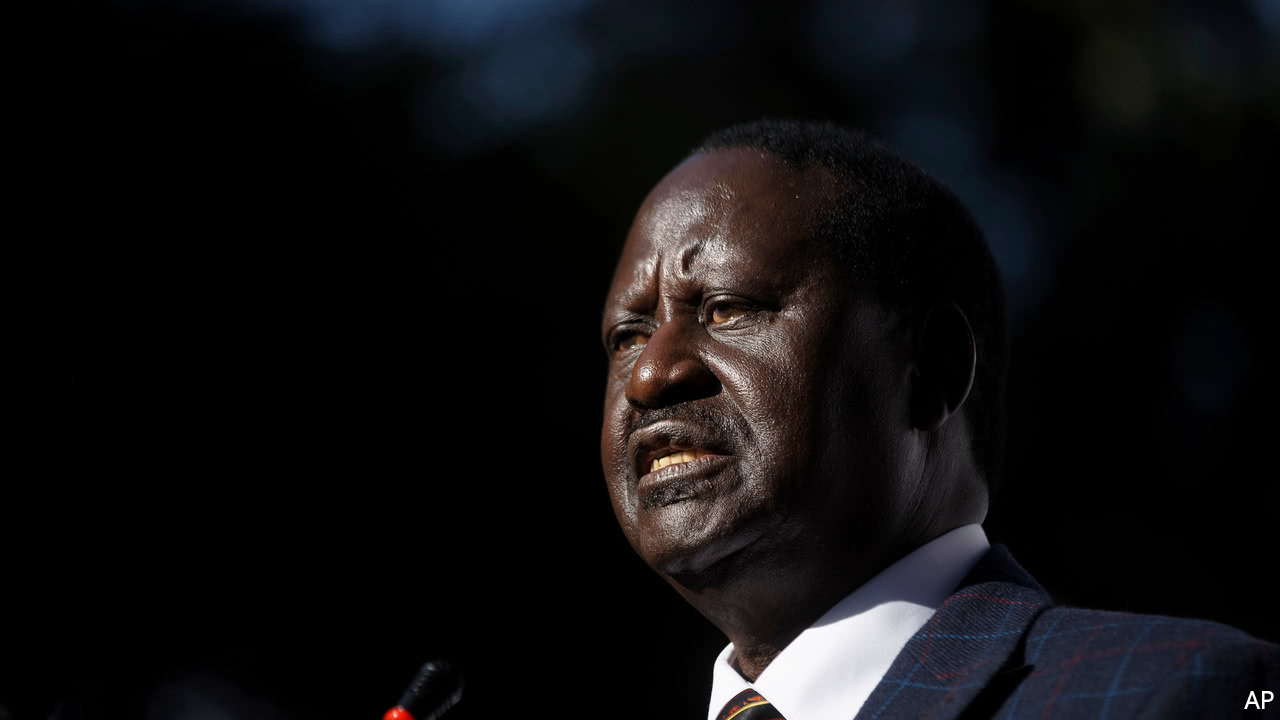Saturday, October 14

MUDDY WATERS
Kenya’s opposition leader enters dangerous territory

Raila Odinga will return from the UK today after addressing a Chatham House forum on Kenya’s democracy.
Three days ago, Mr Odinga withdrew from the October 26 re-run of Kenya’s nullified presidential election. Now it appears the controversial opposition leader is seeking international mediation for the increasingly uncertain situation.
Odinga’s decision to withdraw from the upcoming vote has renewed fears of political violence; 17 were injured last Wednesday while protesting President Uhuru Kenyatta’s rejection of electoral reforms.
The administration has also come under fire for passing a law that states that, if a candidate withdraws from the re-run, the remaining candidate automatically wins. The government is likely to continue such attempts to quickly settle the matter in Kenyatta’s favour.
The rapidly declining situation is reminiscent of the disputed 2007 elections, which led to some 1,400 were being killed. Kenyatta is expected to remain in power, but continued protests and the heightened risk of bloodshed will only serve to damage his legitimacy.
ANOTHER TWO-STATE SOLUTION?
Amid chaos, demonstrators to push for an independent South Yemen

Today, thousands of Yemenis will descend on the port city of Aden to celebrate the 1963 revolts against British rule and demand independence for the South.
Independence would further complicate the political situation in a country that has been mired in civil war since 2015. Championing secession is the Transitional Political Council. Formed after a split in Yemen’s Saudi-backed government earlier this year, the council is placing itself as an alternative governing body for an independent South Yemen.
Despite being rejected by the Gulf Cooperation Council, the Transitional Political Council has offered to work with Saudi Arabia and the international community. Its popular leader, Major General Aidarous al-Zubaidi, and its military support make it a considerable threat to the current government.
An independent South Yemen would likely seek peace with its northern neighbour. However, given the North’s backing from Iran and dominant presence of Shia militias, it is highly unlikely that Saudi Arabia will allow independence while the North still has fight in it. A Saudi-sponsored crackdown would be highly unpopular, so expect a successful rally today to force short-term engagement with the new council.
Delve deeper: Yemen: no easy win
STILL KICKING
St Petersburg to host many of the world’s top lawmakers

The Inter-Parliamentary Union Assembly will convene in St Petersburg today.
The IPU was established in 1889, making it one of the oldest multilateral institutions in the world. Consisting of 173 member countries, the IPU convenes twice a year. With the goal of fostering contact and coordination among lawmakers, the group exclusively involves parliamentarians, regardless of political views and country relations.
This assembly will be the Union’s 137th gathering, and possibly its most significant. South Korea and North Korea are both sending delegates to St. Petersburg, raising hope that the IPU could serve as a rare platform for dialogue between the neighbours.
The St. Petersburg Assembly will also be the largest in the Union’s history, with a record 152 countries expected to send delegations to Russia. Expect the assembly to discuss potential solutions for the ongoing crises in Syria and Ukraine and condemn the ongoing persecution of the Rohingya in Myanmar.


